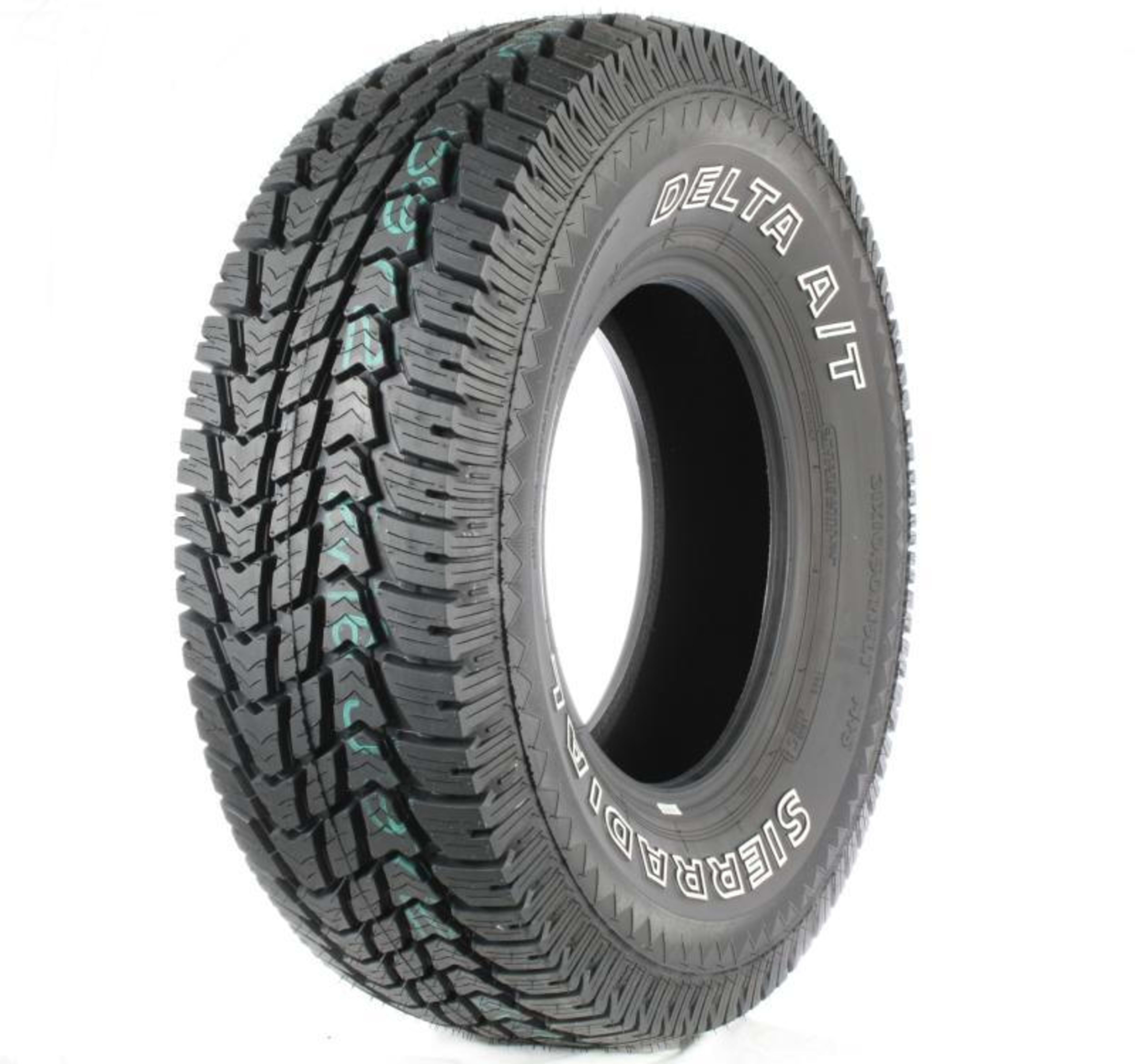Imagine driving down the highway when suddenly you hear a loud bang behind you. It’s not just a scare—it could be your tire exploding. Delta Tire Explosion is becoming a growing concern among drivers, and it’s time we talk about it. From understanding what causes these explosions to how you can prevent them, this article dives deep into the world of tire safety. Whether you're a seasoned driver or just learning the ropes, this knowledge could save you time, money, and possibly even your life.
Tires are more than just rubber meeting the road; they're the unsung heroes of every road trip, daily commute, or even that quick run to the grocery store. But when something goes wrong, like a delta tire explosion, it can turn a simple drive into a major hazard. Understanding the risks and how to avoid them is crucial for every driver.
So buckle up, because we’re about to take you through everything you need to know about delta tire explosions. From the science behind why they happen to actionable tips for keeping yourself safe, this guide has got you covered. Let’s dive in and make sure you're prepared for whatever the road throws your way.
- Reid Lana The Rising Star Taking The World By Storm
- Life On Top Season 1 The Ultimate Guide To The Most Thrilling Show On Streaming
Before we get started, here’s a quick table of contents to help you navigate through this comprehensive guide:
- Biography of Delta Tire Explosion
- What Causes Delta Tire Explosions?
- Symptoms of a Looming Explosion
- How to Prevent Delta Tire Explosions
- Importance of Tire Maintenance
- Common Myths About Tire Explosions
- Delta Tire Explosion Statistics
- Legal Implications of Tire Explosions
- Safety Tips for Drivers
- Final Thoughts
Biography of Delta Tire Explosion
Now, let’s take a step back and understand what exactly we mean by "delta tire explosion." In simple terms, it’s the sudden and often violent rupture of a tire, usually due to extreme pressure or heat. But before we dive into the details, here’s a quick overview of the key facts:
Delta Tire Explosion Overview
Think of your tire as a balloon. If you overinflate it or expose it to too much heat, it’s bound to burst. The same principle applies to tires. Delta tire explosions often occur due to a combination of factors, including improper inflation, excessive wear, and environmental conditions. Below is a quick breakdown of some important stats:
- Marcello Hernandez Stand Up Shows The Ultimate Comedy Experience You Cant Miss
- Who Died Today At 55 Unveiling The Latest Celeb Departures And Their Legacy
| Category | Details |
|---|---|
| Common Cause | Underinflation |
| Average Speed | High-speed driving increases risk |
| Seasonal Risk | Summer heat is a major factor |
| Preventable? | Yes, with proper maintenance |
This isn’t just about understanding the science; it’s about taking action to ensure your safety on the road.
What Causes Delta Tire Explosions?
Delta tire explosions don’t just happen out of the blue. There’s usually a chain of events leading up to the big bang. Here are some of the main culprits:
Top Causes of Tire Explosions
- Underinflation: When a tire doesn’t have enough air, it creates excessive friction with the road, leading to overheating and eventual failure.
- Overloading: Driving with too much weight in your vehicle puts extra stress on the tires, increasing the risk of explosion.
- Worn Treads: Tires with bald or worn treads are more susceptible to blowouts because they can’t handle the heat and pressure as well as new tires.
- Road Hazards: Potholes, sharp objects, and debris on the road can damage tires and lead to explosions.
It’s not just about avoiding these causes; it’s about being proactive in maintaining your tires to prevent them from becoming a hazard.
Symptoms of a Looming Explosion
Before a tire explodes, there are usually warning signs. Pay attention to these red flags:
Watch Out for These Signs
- Vibrations: If you feel unusual vibrations while driving, it could be a sign of a tire issue.
- Noisy Rides: Unusual noises coming from your tires could indicate wear or damage.
- Visual Damage: Inspect your tires regularly for cuts, bulges, or cracks.
- Low Air Pressure: Regularly check your tire pressure to ensure it’s within the recommended range.
Ignoring these symptoms can lead to disaster, so it’s important to act quickly if you notice anything out of the ordinary.
How to Prevent Delta Tire Explosions
Prevention is always better than cure, especially when it comes to tire safety. Here are some practical tips to help you avoid delta tire explosions:
Preventive Measures
- Regular Inspections: Make it a habit to check your tires weekly for any signs of wear or damage.
- Proper Inflation: Keep your tires inflated to the manufacturer’s recommended pressure.
- Rotate Tires: Regularly rotating your tires ensures even wear and extends their lifespan.
- Avoid Overloading: Stick to the vehicle’s weight capacity to reduce stress on your tires.
By following these steps, you can significantly reduce the risk of a delta tire explosion and keep yourself and your passengers safe.
Importance of Tire Maintenance
Tire maintenance isn’t just about avoiding explosions; it’s about ensuring your vehicle runs smoothly and efficiently. Properly maintained tires improve fuel economy, handling, and braking performance.
Here’s a quick checklist for keeping your tires in top shape:
- Check tire pressure monthly.
- Inspect for wear and tear regularly.
- Rotate tires every 5,000 to 8,000 miles.
- Replace tires when tread depth is below 2/32 inch.
Investing time in tire maintenance is one of the best things you can do for your vehicle—and your peace of mind.
Common Myths About Tire Explosions
There’s a lot of misinformation out there about tire explosions. Let’s debunk some of the most common myths:
Busting Tire Explosion Myths
- Myth 1: "Tire explosions only happen in summer." Fact: While heat increases the risk, explosions can occur year-round.
- Myth 2: "New tires can’t explode." Fact: Even new tires can fail if they’re improperly maintained or exposed to extreme conditions.
- Myth 3: "You don’t need to check tire pressure if the TPMS light isn’t on." Fact: The TPMS (Tire Pressure Monitoring System) only warns you when pressure is critically low.
Knowing the truth can help you make better decisions about tire safety.
Delta Tire Explosion Statistics
Data speaks louder than words. Here are some alarming statistics about delta tire explosions:
- Approximately 11,000 tire-related crashes occur annually in the U.S.
- Tire blowouts account for a significant portion of these accidents.
- Underinflated tires are three times more likely to be involved in a crash than properly inflated ones.
These numbers highlight the importance of taking tire safety seriously.
Legal Implications of Tire Explosions
Tire explosions aren’t just a safety concern; they can also have legal ramifications. If a tire fails due to manufacturing defects or negligence, the manufacturer or retailer may be held liable. Understanding your rights as a consumer is crucial.
Here’s what you should know:
- Product Liability: Manufacturers are responsible for ensuring their products are safe.
- Recalls: Stay informed about tire recalls and take action if your tires are affected.
- Insurance Claims: Document any incidents and file claims promptly to protect your interests.
Being aware of your legal options can help you navigate any issues that arise from a tire explosion.
Safety Tips for Drivers
Finally, here are some general safety tips to keep in mind:
- Always wear your seatbelt.
- Keep a safe distance from other vehicles in case of sudden stops.
- Practice defensive driving to anticipate potential hazards.
- Know how to handle a tire blowout safely.
By staying alert and prepared, you can minimize the risks associated with delta tire explosions.
Final Thoughts
In conclusion, delta tire explosions are a serious issue that every driver should be aware of. By understanding the causes, recognizing the symptoms, and taking preventive measures, you can significantly reduce the risk of an explosion. Remember, tire maintenance isn’t just about avoiding accidents; it’s about ensuring a safe and enjoyable driving experience.
So, what’s next? Share this article with your friends and family to spread awareness. Leave a comment below if you have any questions or tips of your own. And don’t forget to check out our other articles for more valuable insights on automotive safety.
Stay safe out there, and keep those tires rolling smoothly!
- Big Brothers Jean Jordan The Ultimate Guide To Her Journey Achievements And Impact
- Hold The Drama Jojo Siwa A Deep Dive Into The World Of Drama And Entertainment


